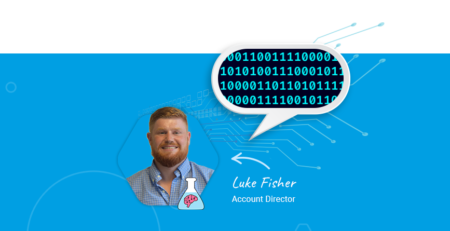A recruitment paradox: how to create a human-centered AND bias-free hiring process
If to be human is to be biased, is it possible to create a human-centered and bias-free hiring process?
At Brainlabs, we aim to create a human-centered candidate experience where candidates deeply understand:
- who we are,
- the job they are applying for,
- who they will be working with,
- and that they are choosing us as much as we choose them.
We also aim to be remarkable in Diversity & Inclusion (D&I): we’re on a mission to create a diverse, equitable and inclusive workplace that embraces and celebrates individuality.
As part of our D&I work, we’ve been working with the Business Psychologists at Pearn Kandola to “take bias out of our business”. As they say: we are all biased, and it’s important to recognize this fact in order to move forward and focus on what we can do about our biases.
In order to achieve our above-mentioned aims, we can’t entirely eliminate humans or bias from our hiring process. What we can do is be intentional in creating a candidate journey that strives to be both inclusive and objective.
Recruitment strategies to implement for more inclusivity:
Ask candidates their preferences
- Get to know candidates on their terms. If applications aren’t anonymized, don’t assume that the name on a resume is what the candidate prefers to be addressed as. In the interview process, ask candidates about their name preference, name pronunciation, and pronoun preferences.
- Remember that the information collected on job applications sets the tone for a candidate’s experience. We should create an environment where candidates feel they can share their authentic selves with us and the team.
Be transparent and accessible
- Provide as much information as you can about your company, the job, and the team they would be working with. Connect candidates with their potential supervisor, team lead, and HR support in the interview process.
- Allow candidates a chance to try out the role. Position preview assessments are a great way for candidates to test out a job and learn whether or not they will love it.
- Give candidates access to details regarding compensation, benefits, perks, and company culture up-front so they can make a fully informed decision about whether they would like to invest additional time in the hiring process. Offer ample opportunities and time for candidates to ask and get all of their questions answered.
Set candidates up for success
- Share next steps and a timeline for hearing back during each step in the hiring process. Provide resources in advance of interviews (like our Ultimate Guide to PPC Marketing and Brainlabs Handbook), giving candidates and interviewers a shared language or foundational understanding they can build from in their conversations.
Recruitment strategies to implement for more objectivity:
Remove bias from initial candidate screening
- We partner with Career.Place, an anonymous candidate screen platform, for all of our entry level roles in the US. Through Career.Place, candidates confirm job requirements, compensation, and complete soft skills assessments at their own pace. During this initial screening, candidates are anonymous and their progress to the next step in the interview process is solely determined by them. In the UK, we’ve introduced nameless and CV-less entry-level job opportunities.
Include assessments
- Position preview assessments are not only a great way for candidates to test out the job, but are also an unbiased way to determine whether a candidate is qualified for a role.
Be consistent in your evaluation
- Establish objective criteria by which all candidates are evaluated and ensure the interview team is consistently applying these criteria.
- Check biases by holding a debrief after final interviews with all parties involved to hold ourselves and our teams accountable.
- Focus candidate feedback on evidence – what did the candidate say or do to demonstrate they can do the job, will love the job, and be a value add for your organization.
Although the aims of being human-centered and bias-free in recruitment may initially appear to be in opposition, through thoughtful analysis and strategic interventions, it is possible to strike a balance.
I would love to hear how you’re striking this balance! Please share your feedback, questions, and ideas via us-recruitment@brainlabsdigital.com.
PS: If you want to learn more about bias, check out my teammate and friend Nari Bowie’s blog ‘How Unconscious Bias Can Lead to Microaggression’.




